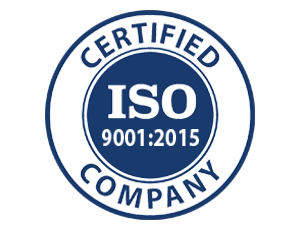Liquid Molding Monthly
How to Select the Best Automotive Power Cable for Your Global Supply Chain Requirements
In the rapidly evolving automotive industry, the demand for high-quality components like Automotive Power Cables is more critical than ever. A recent report from MarketsandMarkets highlights that the global automotive wiring harness market, which includes power cables, is projected to reach USD 80 billion by 2026, growing at a CAGR of 6.2%. This growth is driven by the increasing prevalence of electric vehicles (EVs) and the rising complexity of automotive electronics. As automakers navigate global supply chain challenges, selecting the right Automotive Power Cable becomes essential for ensuring reliability, efficiency, and safety in vehicles. In this blog, we will explore key tips and considerations for selecting the best Automotive Power Cable that aligns with your global supply chain requirements, ultimately enhancing performance and meeting industry standards.
Understanding the Importance of Automotive Power Cables in Global Supply Chains
Automotive power cables are critical components within the global supply chain, ensuring reliable energy transfer and supporting advanced vehicle technologies. According to a report by MarketsandMarkets, the automotive wiring harness market, including power cables, is expected to grow from USD 59.2 billion in 2021 to USD 74 billion by 2026, reflecting a compound annual growth rate (CAGR) of 4.5%. This growth underscores the increasing reliance on high-quality power cables to manage the complex electrical systems in modern vehicles, from electric drivetrains to infotainment systems.
The significance of automotive power cables goes beyond just performance; they also play a vital role in safety and compliance with global industry standards. With over 9 million electric vehicles projected to be in operation by 2025, the demand for robust and efficient wiring solutions will surge. As highlighted in a study by the International Automotive Manufacturing Alliance, failures in power cable systems can lead to costly recalls and downtime, emphasizing the need for manufacturers to select cables that not only meet technical specifications but also adhere to international safety standards. Investing in superior automotive power cable solutions is thus essential for companies aiming to maintain competitiveness and reliability in a rapidly evolving automotive landscape.
Key Performance Indicators for Selecting Automotive Power Cables
When selecting automotive power cables for a global supply chain, key performance indicators (KPIs) play a crucial role in ensuring both efficiency and reliability. Performance metrics such as conductivity, thermal resistance, and mechanical durability should be prioritized. For instance, a recent study suggests that cables with lower thermal resistance can reduce energy losses by up to 10%, thus improving overall system performance. Additionally, evaluating the cable's resistance to elements such as humidity and temperature fluctuations is vital, as failure in these conditions can lead to significant downtime.
**Tip:** Always consider the compatibility of the power cable with existing systems to avoid costly retrofits. Regular monitoring of these performance indicators can drive continuous improvement in supply chain operations.
Moreover, the trend towards hybrid vehicles underscores the importance of robust cable management solutions. As green supply chain management gains traction, automotive enterprises need to incorporate sustainability parameters into their KPI frameworks. This includes evaluating the lifecycle impact of power cables and their recyclability, which can align with industry standards aimed at achieving carbon neutrality.
**Tip:** Engage with suppliers who offer comprehensive performance evaluations to ensure the cables meet advanced environmental standards and enhance the overall product reliability.
Material Selection and its Impact on Cable Efficiency and Durability
When selecting the best automotive power cable for your global supply chain requirements, material selection plays a critical role in determining both cable efficiency and durability. Advanced materials, such as carbon nanotubes and graphene, have garnered significant attention for their exceptional properties. A recent review of carbon nanotube research revealed that these materials can enhance electrical conductivity while also providing superior strength-to-weight ratios. This makes them a viable option for automotive applications where reducing weight without compromising performance is essential.
Furthermore, multi-material additive manufacturing is revolutionizing the way we design and produce automotive cables. By leveraging techniques developed in this field, manufacturers can create cables that not only fulfill electrical requirements but also withstand harsh environmental conditions. The integration of cellular metamaterials can lead to innovations in cable design, allowing for improved flexibility and durability. As the industry evolves, it is essential to stay informed about these emerging materials and their applications, as they hold the potential to drive efficiency and longevity in automotive power systems.
Compliance Standards: Navigating Regulations for Global Cable Usage
When it comes to selecting the best automotive power cable for your global supply chain, understanding compliance standards is paramount. Different regions have specific regulations governing cable usage, which can significantly impact production and distribution. For instance, cables must often meet strict safety and environmental standards to ensure they are suitable for various automotive applications. By familiarizing yourself with these regulations, you can streamline your supply chain, reduce risks, and avoid costly non-compliance penalties.
Navigating the complex web of global compliance requirements can be daunting, but it is essential for maintaining competitiveness in the automotive industry. Key standards to consider include ISO certifications, RoHS directives, and regional regulations like UL and CE markings. Each of these certifications not only reinforces the credibility of your product but also ensures that your automotive power cables are safe for vehicles worldwide. Engaging with expert consultants in compliance can help you remain updated on evolving regulations and assist in selecting cables that meet these diverse standards, ultimately enhancing your supply chain’s efficiency and reliability.
Emerging Trends in Automotive Power Cable Technologies for Future Needs
As the automotive industry continues to evolve, so do the demands placed on power cable technologies. Emerging trends indicate a shift towards lightweight, high-performance materials that can withstand extreme conditions while providing improved efficiency. Innovations such as thermoplastic elastomers and advanced composites are gaining traction, promising not only to reduce the overall weight of vehicles but also to enhance their energy efficiency. These materials are designed to meet the stringent requirements of modern vehicles, such as electric and hybrid models, which demand robust and reliable power systems.
Another noteworthy trend is the integration of smart technologies into automotive power cables. With the increasing adoption of IoT and connected vehicles, cables equipped with sensors that monitor performance and detect failures in real-time are becoming essential. This proactive approach to vehicle maintenance can significantly reduce downtime and maintenance costs, allowing manufacturers to optimize their supply chains. As automakers focus on sustainability, these intelligent cables will also play a crucial role in ensuring that power delivery meets the rising standards for environmental responsibility.
How to Select the Best Automotive Power Cable for Your Global Supply Chain Requirements - Emerging Trends in Automotive Power Cable Technologies for Future Needs
| Parameter | Standard | Material | Voltage Rating (V) | Current Rating (A) | Temperature Range (°C) | Emerging Trend |
|---|---|---|---|---|---|---|
| Low Voltage Power Cable | ISO 6722 | Copper | 0-60 | 16 | -40 to +125 | High Efficiency Conductors |
| Medium Voltage Cable | IEC 60502 | Aluminum | 60-1000 | 25 | -40 to +90 | Flexible Insulation Technologies |
| High Voltage Cable | IEC 60840 | Combination of Copper and Aluminum | >1000 | 35 | -40 to +90 | Advanced Thermal Management |
| Specialty Cable for EVs | SAE J1772 | Copper Alloy | Up to 1000 | 50 | -40 to +105 | Rapid Charging Technology |


100% Mercury Free
All of Hapco's formulations are completely free of Mercury.

50 Year Track Record
Hapco has been in business for over 50 years!
*NOTICE* Hapco will be will be closed on Monday, May 26th, in observance of Memorial Day. |
Privacy Overview
| Cookie | Duration | Description |
|---|---|---|
| cookielawinfo-checkbox-analytics | 11 months | This cookie is set by GDPR Cookie Consent plugin. The cookie is used to store the user consent for the cookies in the category "Analytics". |
| cookielawinfo-checkbox-functional | 11 months | The cookie is set by GDPR cookie consent to record the user consent for the cookies in the category "Functional". |
| cookielawinfo-checkbox-necessary | 11 months | This cookie is set by GDPR Cookie Consent plugin. The cookies is used to store the user consent for the cookies in the category "Necessary". |
| cookielawinfo-checkbox-others | 11 months | This cookie is set by GDPR Cookie Consent plugin. The cookie is used to store the user consent for the cookies in the category "Other. |
| cookielawinfo-checkbox-performance | 11 months | This cookie is set by GDPR Cookie Consent plugin. The cookie is used to store the user consent for the cookies in the category "Performance". |
| viewed_cookie_policy | 11 months | The cookie is set by the GDPR Cookie Consent plugin and is used to store whether or not user has consented to the use of cookies. It does not store any personal data. |


